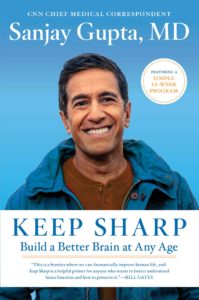
In today’s times, it may be hard to get a good night’s sleep. So much is going on. The Insurrection at the Capital. The Pandemic. The Economy. When you do get a good night’s sleep, it is such a pleasure. You wake up feeling rested, feeling calm, feeling rejuvenated, ready to take on the day. That is no coincidence.
Sleep is one of the most undervalued health powerhouses for the body and the brain that we have and can, to a large extent control. The medical community has awakened to the significant benefits of sleep and how important sleep is to our overall health and longevity of life.
Like many of you, I truly enjoy a good night’s sleep. Those mornings when I feel so good, I don’t want to leave my bed because the pleasure is so wonderful—if I can get more of that feeling, sign me up! There are ways to increase the pleasure of our
 sleep, and in doing so, we can increase the power of our sleep to restore our bodies and our brains, if we become disciplined about making sleep a priority—right up there with diet and exercise as key pillars for maintaining good health.
sleep, and in doing so, we can increase the power of our sleep to restore our bodies and our brains, if we become disciplined about making sleep a priority—right up there with diet and exercise as key pillars for maintaining good health.
Dr. Sanjay Gupta, a neurosurgeon, medical reporter for CNN, and author of the new book “Keep Sharp: Build a Better Brain at Any Age” has some interesting perspectives on sleep and excellent tips we can all benefit from, which I think are helpful to share.
RELATED: 5 Things Getting In The Way Of A Good Night’s Sleep
Sleep Myths and Sleep Benefits
We often hear about entrepreneurs and celebrities proudly crowing about how they can get by on only four hours of sleep a night.
According to Dr. Gupta, if they do, they are at a high risk of health challenges down the road. These include dementia, depression, mood disorders, memory problems, heart disease, high blood pressure, weight gain, fall-related injuries, and cancer.
Lack of sleep is no merit badge. Your body and brain can’t be fooled. They both need rest to reset their functions.
What I found most interesting is the myth that the body is on pause when we go to sleep. Far from it. It is restoring and replenishing all of our








